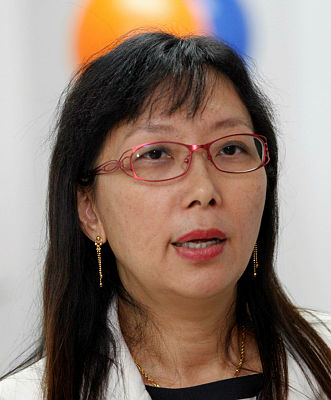KUALA LUMPUR: Primary Industries Minister Teresa Kok (pix) has urged Norway to review its policy against phasing out biofuels based on palm oil, adding that Malaysia is not convinced that the evaluation of palm oil has been fair and just.
“We also note that the Norwegian Parliament has asked its government to limit and phase out palm oil through measures and taxes in biofuels policy that ‘exclude biofuels with high deforestation risk both within and outside the blending mandate’, to take effect from Jan 1, 2020.
“Nevertheless, we urge Norway to review this discriminatory policy and we invite Norway’s lawmakers to come to Malaysia and see for themselves and better understand the sustainable practices that are a hallmark of the Malaysian palm oil industry,” she said in a statement.
Explaining that the Norwegian Parliament’s vote will make the country the first in the world to ban biofuels based on palm oil, she noted the Scandinavian country’s stand against palm oil is likely to adversely affect bilateral trade relations between Malaysia and the European Free Trade Association (EFTA), which Norway is also part of. This would also be a major obstacle towards a successful conclusion of the Malaysia-EFTA partnership talks.
Kok said the concern is that Norway, like some other European countries, will generalise and categorise all palm oil producers as drivers of deforestation hence deeming their produces as unsustainable -- without clear and proper definitions and valid facts to support the decision.
“This misguided ‘trend’ was also the basis for the reason why the Council of Palm Oil Producing Countries that include the major palm oil producers Indonesia and Malaysia, recently declined an invitation to collaborate at the EU workshop on ‘Indirect Land Use Change (ILUC)’ in relation to palm oil production, due to a lack of transparency and credibility with respect to the whole ILUC processes. This sort of action smacks of injustice and discrimination against products from developing countries like Malaysia,” she added.
As a responsible producer of palm oil, she said Malaysia has already set in motion various initiatives to ensure sustainable practices are the norm rather than the exception, throughout the palm oil value chain, which includes the mandatory Malaysian Sustainable Palm Oil (MSPO) certification.
The certification complements efforts and expertise such as Good Agriculture Practices, preservation of forests by restricting oil palm plantations to designated agriculture areas and the pledge to maintain its forest cover by at least 50%.
In addition, Malaysia as a nation prescribes to the United Nations 2030 Agenda for Sustainable Development and its 17 Sustainable Development Goals.
“But, it appears these efforts are not appreciated and largely ignored by Europe including Norway, which continues to label our palm oil as unsustainable. We view this as unfair and unjust, going against free and fair trade, and is certainly not something we will take lightly,” she said.
Kok said Malaysia would “factor in such actions carefully” in its deliberation with the EFTA, which involves countries such as Switzerland, Liechtenstein, Norway and Iceland.
The Malaysia EFTA partnership agreement, she said, must provide fair market access to all of the countries involved, including fair treatment of sustainable palm oil, which is produced in Malaysia.
Without fair market access, it will not be in the interest of Malaysia to pursue what will be a bad deal for the country and its people, particularly for the 650,000 oil palm smallholders whose livelihood is at stake.













